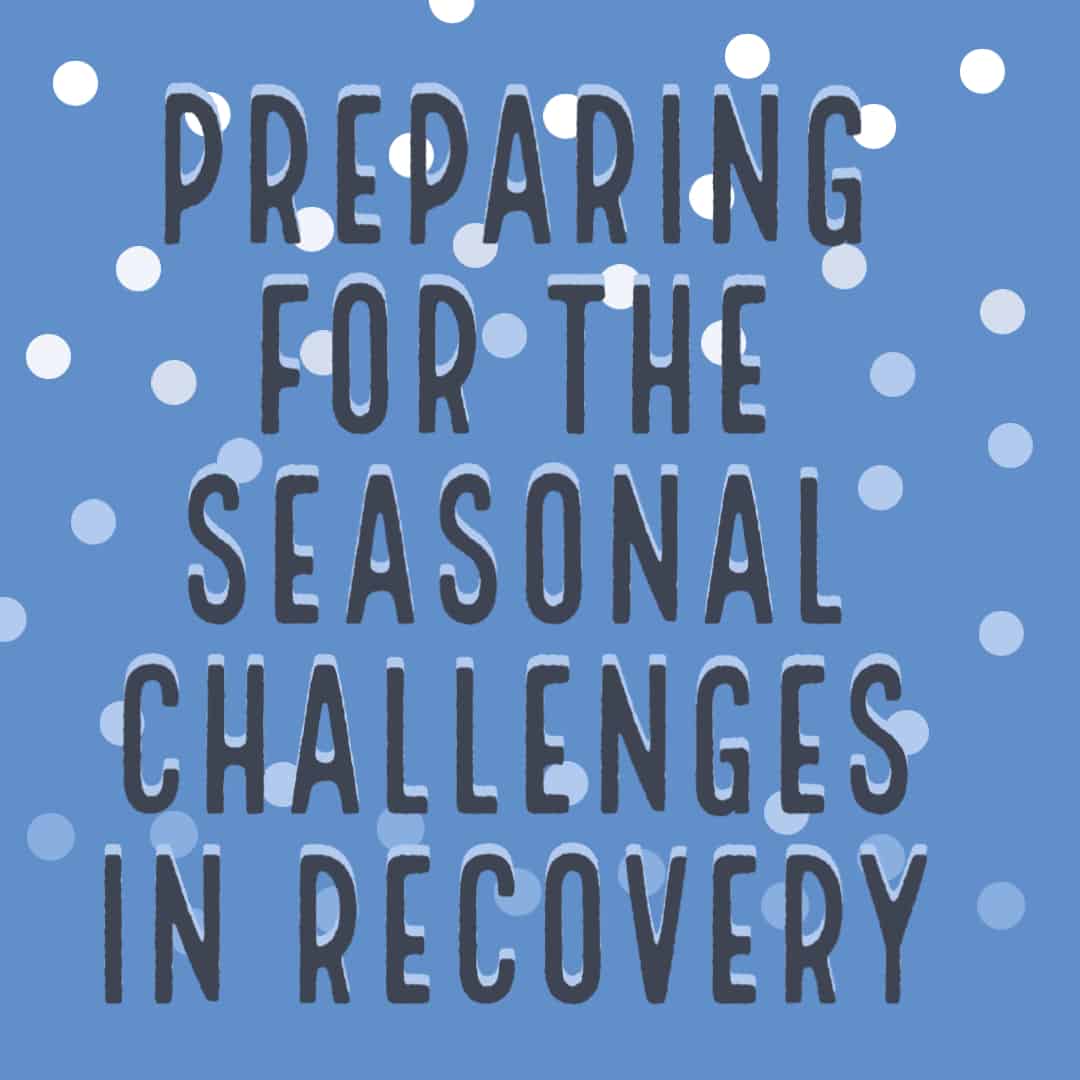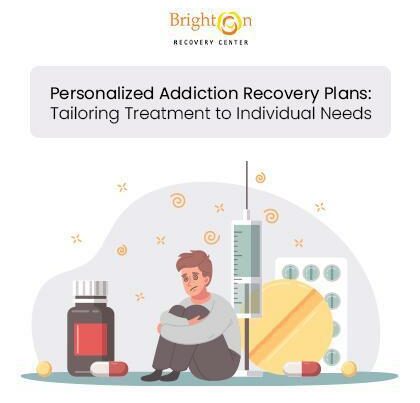Preparing for the Seasonal Challenges in Recovery

Winter months bring several challenges for those in recovery. Not only is there the effects of seasonal affective disorder that someone may have to cope with, but there are also several holidays that someone may have to prepare for. New strategies may also need to be implemented to compensate for the extended amount of time that someone will have to spend indoors due to the cold or lack of sunlight. Compounded with the isolation and precautions in place due to the coronavirus’s continued effects, this time of year can become extraordinarily difficult for someone in recovery. While changes may have to be made or new strategies learned, coping with one’s recovery through the unique challenges presented at this time of year is possible.
Preparing for Holiday Celebrations
Holidays often present a unique challenge for those in recovery. Whether someone is celebrating Thanksgiving, Christmas, Hanukkah, Kwanzaa, or is preparing for a New Year’s celebration, there can be several difficult challenges to overcome. Suppose it is someone’s first time going through these holidays with a sober mind. In that case, they may have to plan these celebrations ahead of time to ensure that many of the traditions will be safe and conducive to the recovery process. Many holiday celebrations may involve drinking or practices that could remind someone of their past engagement with drugs or alcohol. Preparing for these holidays means understanding that new traditions may be necessary, and older practices may need to be adjusted or omitted as a result.
There are several ways that someone can choose to celebrate these holidays in a new, sober manner. Some may focus on the historical or cultural impact the holiday has and can use the time to explore to find the reason why the holiday is celebrated. Others may take a more spiritual approach to these times of the year. For example, someone may celebrate Christmas with a religious take rather than a reason only for festivities and gifts. It may be necessary for those just beginning their journey to sobriety to avoid holiday celebrations if proper precautions aren’t taken or if they are not yet prepared with appropriate coping mechanisms and supports.
Effects of Seasonal Affective Disorder
Seasonal affective disorder can present challenges through the recovery process. It can make someone who typically uses outdoor activities as coping mechanisms have to rethink their strategies based on the limited daylight and cold temperatures or have to plan their days further to use what light they have to their advantage. These factors also can contribute to feelings of depression and isolation – two aspects that are already difficult to cope with in addiction recovery through the other parts of the year. Seasonal affective disorder can also further create irregular sleeping schedules and mealtimes. It can lead to an overall deconstruction of one’s day’s structure, creating more uncertainties and the need to implement new or adjusted coping strategies.
Steps to Take to Prepare
Preparing for the seasonal challenges may involve a few different approaches. It can cause those in recovery to address their holiday plans and expectations with loved ones and family members to ensure that celebrations are conducted soberly and that those in attendance are willing to try out a new approach to a particular holiday. It can even mean creating brand new traditions as a symbol of moving forward in one’s recovery. Starting certain movie traditions on specific holidays or a new culture surrounded by a communal meal for all to partake in are just a few ways that someone can begin to redefine what these holidays mean to them.
Other practices involve trying out new hobbies as early as possible so that someone has a few interests that can be done indoors through the season. Trying out art therapy or media therapy can be especially beneficial during this time as they do not rely on a particular amount of natural daylight or temperature to be used effectively. It is also essential to begin to set a strict schedule for one’s self through this time, even if it means waking up when the sun has not yet risen. Keeping routines as normal as possible can add needed structure and consistency to one’s life regardless of the time of year and help someone maintain healthy sleeping, eating, and hygiene habits.
Staying Connected and Active
Staying connected and active is paramount during winter to combat feelings of loneliness or isolation. Making an effort to have regular contact with family members, supports groups, or other friends can make all the difference. The winter months may make meeting in person more difficult. However, maintaining regular contact through phone, video chat, or periodic emails to check in on each other can go a long way in addressing the feelings of isolation that may be present.
Staying active is also important regardless of the time of year. While meeting up for a pick-up game of basketball may be difficult, having indoor physical routines can help someone maintain a healthy balance in their lives. Starting their workout routines, or even walking on a treadmill, can keep someone’s physical health at the front of their minds. There are also various apps that someone can use to guide them through indoor physical activities, and even several video games that use motion controls to promote physical exercise, some of which can even track your progress. Finding one of these outlets that work for each person as early as possible can help to settle into a new routine through difficult seasonal challenges become a little bit easier.
Changing seasons can make many parts of recovery difficult, and learning to cope with these changes and holidays are a critical part of the recovery process. Suppose you or a loved one struggles with an addiction to drugs or alcohol or is looking to expand your skillset and coping mechanisms. In that case, Brighton Recovery Center can help personalize an approach that works for you. Whether someone is living in our sober living facility or is participating in our intensive outpatient program, there are always new, personal approaches that can be customized to fit your needs and goals in recovery. Employing several different proven therapies, alongside a curated recovery community complete with a shared recreation center, your time with us is spent focusing on your own goals while learning new, practical skills every day. For more information on how we can personalize a program for you, or discuss your unique situation, call us today at (844) 479-7035.



